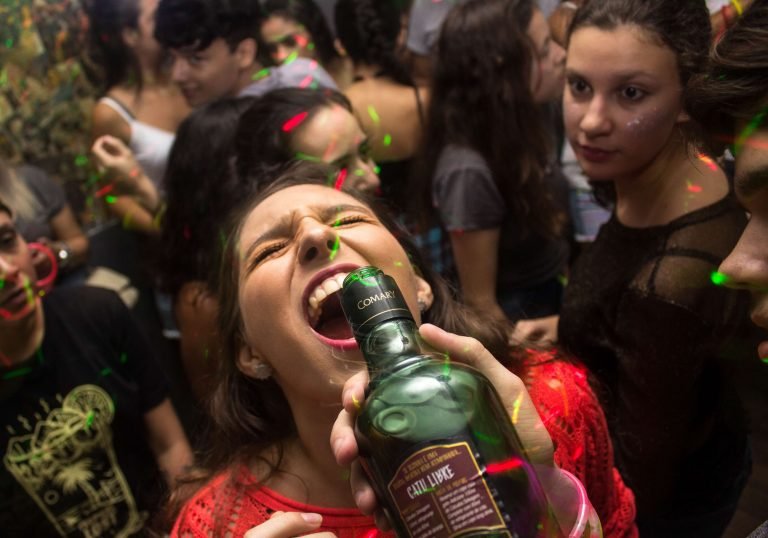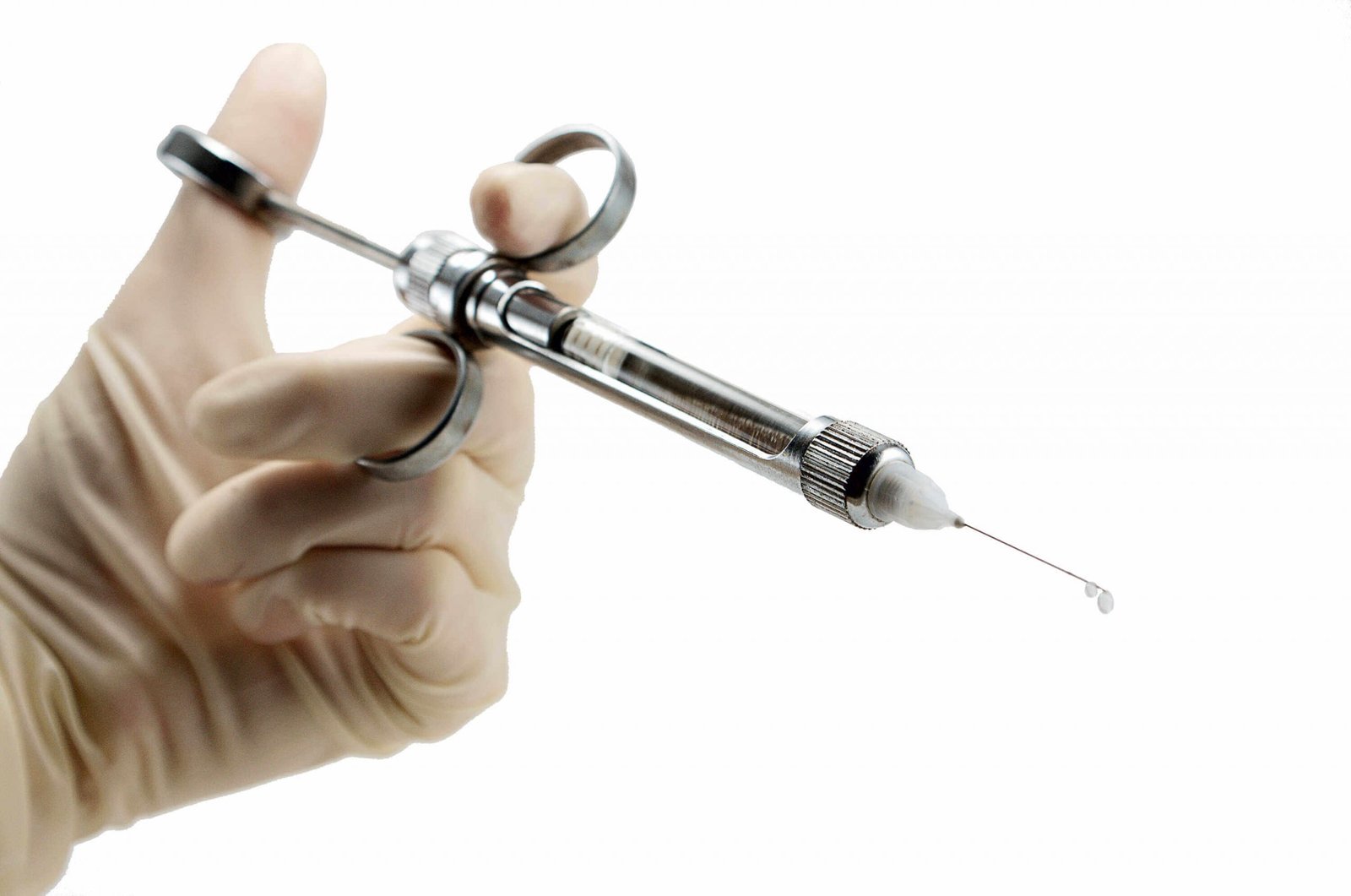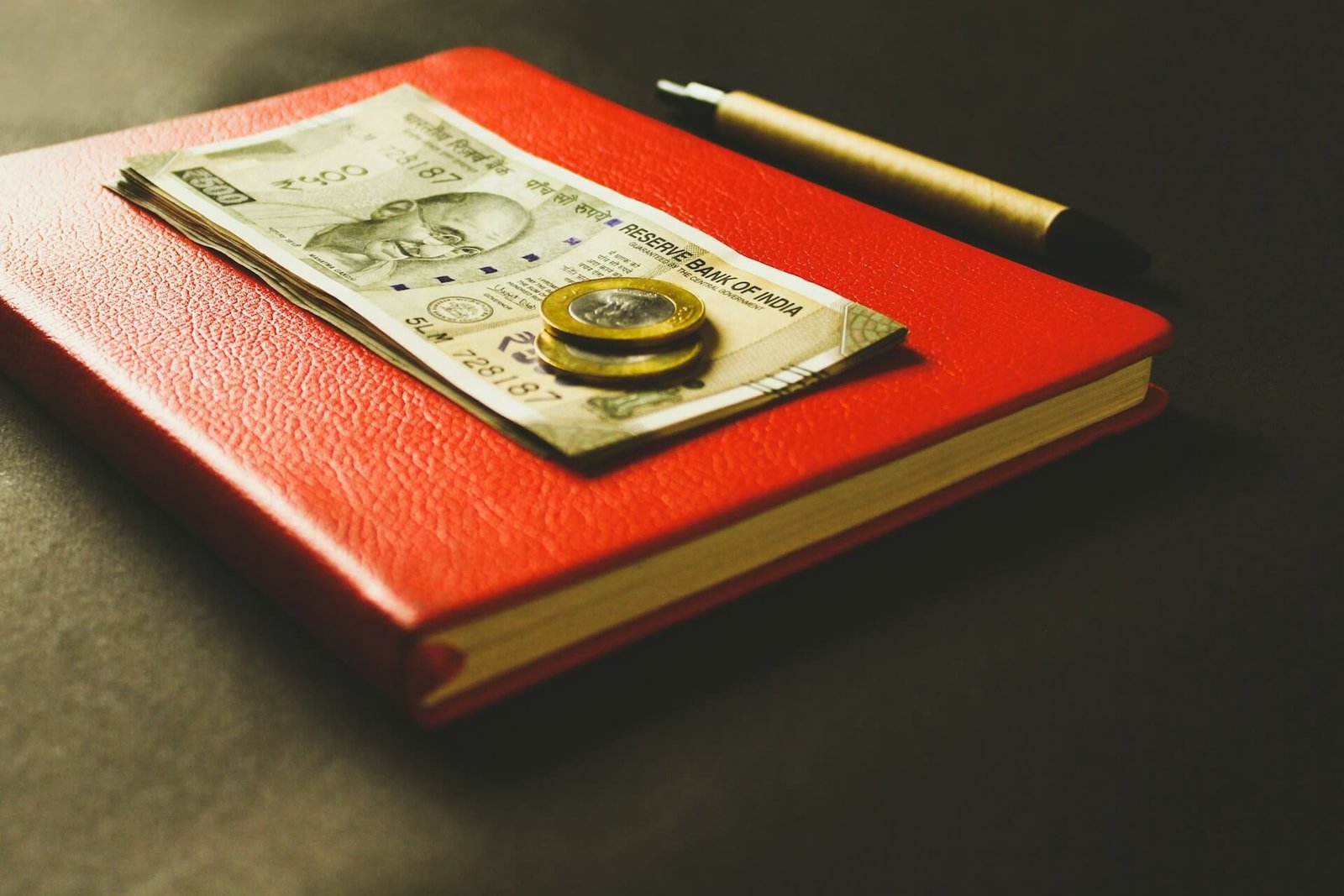Binge drinking is a prevalent issue that affects millions of people worldwide. A binge drinking episode is defined as consuming an excessive amount of alcohol in a short period, which can lead to severe physical and mental health problems, addiction, and social consequences. This article aims to provide a comprehensive guide on how to stop binge drinking, highlighting the dangers associated with it, identifying triggers, and offering practical strategies for overcoming this behavior.
Key Takeaways: How to Stop Binge Drinking
- Understand the Risks: Recognize the serious health risks associated with binge drinking, including liver damage, cardiovascular issues, and mental health problems. Addressing unhealthy drinking habits is crucial, as they can severely impact physical health and relationships.
- Identify Triggers: Determine what triggers your drinking habits and develop strategies to avoid or manage these triggers effectively.
- Set Clear Goals: Establish clear, achievable goals for reducing or eliminating alcohol consumption, and regularly review your progress.
- Seek Support: Build a strong support network of family, friends, and support groups to help you stay accountable and motivated.
- Consider Professional Help: Seek professional treatment options, including detox programs, rehabilitation, and therapy, to address the psychological and physical aspects of addiction.
- Adopt Healthy Alternatives: Replace drinking with healthier activities such as exercise, hobbies, and socializing without alcohol.
- Practice Mindful Drinking: Use mindful drinking techniques like pacing yourself, alternating with non-alcoholic beverages, and setting limits.
- Manage Cravings: Use strategies such as distraction, delay, and deep breathing to manage cravings and avoid relapse.
- Educate Yourself: Continuously educate yourself about the dangers of binge drinking and the benefits of sobriety through books, articles, and workshops.
- Monitor Progress: Regularly assess your progress, make necessary adjustments to your plan, and celebrate your successes along the way.
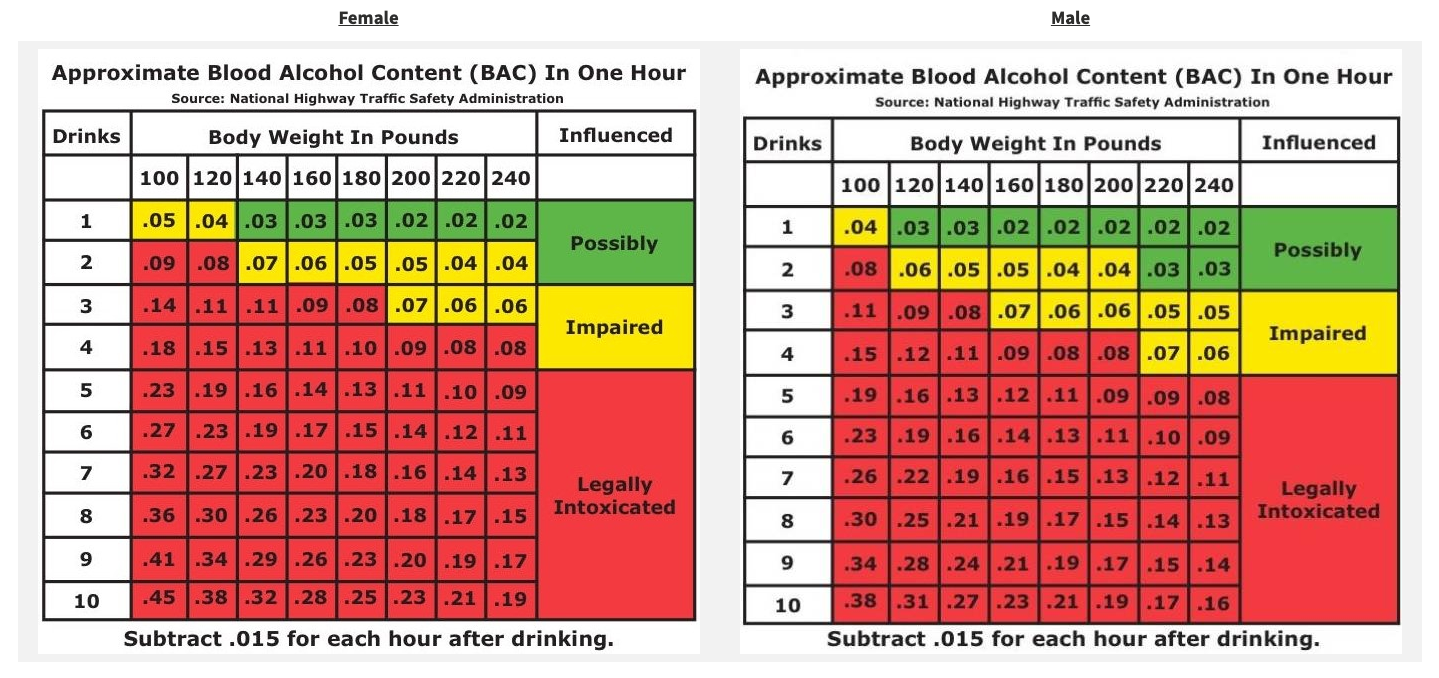
Understanding Binge Drinking
Definition and Statistics Binge drinking is commonly defined as consuming five or more drinks for men, and four or more drinks for women, within about two hours. A standard drink typically contains about 14 grams of pure alcohol, and consuming multiple drinks in a short timeframe can lead to harmful levels of alcohol in the bloodstream, posing significant health risks. According to the Centers for Disease Control and Prevention (CDC), one in six adults in the United States binge drinks about four times a month, consuming approximately seven drinks per binge. Understanding these statistics is crucial in recognizing the widespread nature of the problem of binge drinkers and the need for effective intervention strategies.
Health Risks Associated with Binge Drinking
- Short-term Risks:
- Alcohol poisoning
- Accidents and injuries
- Violent behavior and legal problems
- Unplanned and unsafe sexual activity
- Memory blackouts
- Long-term Risks:
- Chronic diseases such as liver disease, heart disease, and hypertension
- Mental health issues including depression and anxiety
- Dependence and addiction
- Cognitive impairments and brain damage
- Social and relationship problems
Identifying Triggers and Patterns
Recognizing Triggers Understanding what triggers your binge drinking, especially those that involve alcohol, can help you develop strategies to avoid or manage these triggers. Common triggers include:
- Social Situations: Parties, gatherings, or environments where alcohol is present.
- Emotional States: Stress, anxiety, depression, or loneliness.
- Environmental Cues: Bars, clubs, or any place associated with drinking.
- Peer Pressure: Influence from friends or colleagues to drink excessively.
Analyzing Drinking Patterns Keeping a diary of your drinking habits can help identify patterns and triggers for binge drink. Record the amount you drink, the situations in which you drink, and your emotional state at the time. This self-awareness is a crucial first step in controlling binge drinking.
Setting Clear Goals
Creating a Plan Setting clear, achievable goals is vital in reducing or stopping alcohol use disorder binge drinking. Here are steps to create an effective plan:
- Define Your Goals: Decide whether you want to cut back on drinking or stop altogether.
- Set a Timeline: Establish a realistic timeframe to achieve your goals.
- Identify Obstacles: Anticipate potential challenges and plan how to address them.
- Track Progress: Regularly review your progress and adjust your plan as needed.
Using SMART Goals Using the SMART criteria can make your goals more attainable:
- Specific: Clearly define your goal (e.g., “I will limit myself to three drinks per week”).
- Measurable: Ensure you can track your progress (e.g., keeping a drinking diary).
- Achievable: Set a goal that is realistic and attainable.
- Relevant: Make sure your goal aligns with your broader life objectives.
- Time-bound: Set a deadline to achieve your goal.
How to Stop Binge Drinking: A Comprehensive Guide (Part 2)
Practical Strategies for Reducing Alcohol Intake
Mindful Drinking Techniques Mindful drinking involves being aware of why you heavy drinking and how much you are drinking, and making conscious choices rather than drinking out of habit or compulsion. Techniques include:
- Pacing Yourself: Drink slowly and take breaks between drinks.
- Alternating with Non-Alcoholic Beverages: Drink water or other non-alcoholic drinks between alcoholic ones.
- Eating Before and While Drinking: Eating can slow the absorption of alcohol and reduce the desire to drink excessively.
- Setting Limits: Decide in advance how many drinks you will have and stick to it.
- Being Cautious with Mixed Drinks: A mixed drink ordered in a bar or restaurant may contain as much as three times the alcohol found in one standard drink, so be mindful of the potential risks.
Finding Alternatives to Drinking Finding other ways to socialize and cope with stress can reduce the reliance on an excessive alcohol consumption. Consider the following alternatives:
- Physical Activity: Exercise can improve mood and reduce stress.
- Hobbies: Engage in activities that interest you and keep you busy.
- Socializing Without Alcohol: Plan activities with friends that do not revolve around drinking.
- Relaxation Techniques: Practice yoga, meditation, or deep-breathing exercises to manage stress.
Building a Support System Having a strong support system can make a significant difference in your efforts to stop binge drinking alcohol use. Seek support from:
- Friends and Family: Talk to trusted friends and family members about your goals and ask for their support.
- Support Groups: Join groups like Alcoholics Anonymous (AA) where you can share experiences and gain encouragement from others who understand what you’re going through.
- Professional Help: Consider speaking to a counselor or therapist who specializes in addiction.
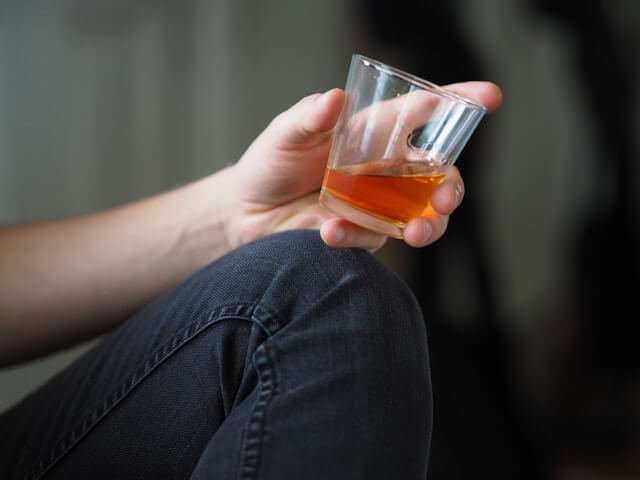
How to Stop Binge Drinking: A Comprehensive Guide (Part 3)
Coping with Cravings and Relapses
Managing Cravings Cravings for alcohol can be intense, but there are strategies to manage them effectively:
- Distraction: Engage in activities that divert your attention from the craving.
- Delay: Give yourself time to reconsider by delaying the urge to drink.
- Deep Breathing: Use deep-breathing exercises to relax and reduce the intensity of the craving.
- Drink Alternatives: Have a list of non-alcoholic drinks that you enjoy as substitutes.
Dealing with Relapses Relapses are common in the journey to stop binge- drinking alcohol again. Here’s how to handle them:
- Don’t Be Discouraged: Understand that setbacks are part of the process and do not mean failure.
- Analyze the Situation: Identify what led to the relapse and learn from it.
- Reaffirm Your Commitment: Remind yourself of your goals and why you want to stop binge drinking.
- Seek Support: Reach out to your support network for encouragement and guidance.
Long-term Strategies for Maintaining Sobriety
Adopting a Healthy Lifestyle A healthy lifestyle can support your efforts to take alcohol abuse and stop binge drinking:
- Balanced Diet: Eating a nutritious diet can improve your overall well-being.
- Regular Exercise: Physical activity can reduce stress and improve your mood.
- Adequate Sleep: Ensure you get enough rest to help your body recover and function optimally.
- Stress Management: Use healthy coping mechanisms to deal with stress and avoid turning to alcohol.
Setting Long-term Goals Incorporate long-term goals into your plan to maintain sobriety:
- Personal Development: Focus on personal growth and development through education, hobbies, and new experiences.
- Career Advancement: Set career goals that motivate you to stay sober and productive.
- Relationship Building: Work on building and maintaining healthy relationships with friends and family.
Staying Vigilant Staying vigilant and aware of your triggers and potential pitfalls is crucial for long-term success:
- Regular Self-Assessment: Periodically assess your progress and make adjustments to your plan as needed.
- Continued Support: Maintain connections with your support network and participate in support groups.
- Education: Continue educating yourself about the dangers of binge drinking and the benefits of sobriety.
How to Stop Binge Drinking: A Comprehensive Guide (Part 4)
The Role of Professional Help in Alcohol Abuse
Seeking Professional Treatment Professional treatment can provide structured support and guidance:
- Detox Programs: Medical detox programs can help manage withdrawal symptoms safely.
- Rehabilitation Programs: Inpatient and outpatient rehab programs offer comprehensive treatment plans.
- Therapy and Counseling: Individual and group therapy sessions can address the underlying causes of binge drinking and provide coping strategies.
Types of Therapy Different types of therapy can be effective in treating the effects of binge drinking:
- Cognitive-Behavioral Therapy (CBT): Helps identify and change negative thought patterns and behaviors.
- Motivational Interviewing (MI): Enhances motivation to change drinking behavior.
- Family Therapy: Involves family members in the treatment process to address dynamics that may contribute to drinking.
Medications Medications can also play a role in reducing the excessive alcohol use, cravings and dependence:
- Naltrexone: Reduces the pleasurable effects of alcohol.
- Acamprosate: Helps maintain abstinence by reducing withdrawal symptoms.
- Disulfiram: Causes unpleasant reactions when alcohol is consumed, deterring drinking.
How to Stop Binge Drinking: A Comprehensive Guide (Part 5)
Additional Resources and Support
Online Resources Numerous online resources can provide information and support:
- Educational Websites: Websites like the CDC and NIH offer comprehensive information about binge drinking and its effects.
- Online Support Groups: Online forums and groups can provide community support and shared experiences.
Books and Literature Reading books on addiction and recovery can provide valuable insights and motivation:
- “The Naked Mind” by Annie Grace: Explores the psychology behind drinking and offers strategies to stop.
- “Alcoholics Anonymous: The Big Book” by Bill W.: A foundational text for those seeking sobriety through AA.
Mobile Apps Several mobile apps can help track your progress and provide support:
- Sober Time: Tracks your sobriety and provides motivational quotes.
- I Am Sober: Allows you to document your journey and connect with others in recovery.
How to Stop Binge Drinking: A Comprehensive Guide (Part 6)
Practical Strategies for Reducing Alcohol Intake
Mindful Drinking Techniques Mindful drinking involves being aware of why and how much you are drinking, and making conscious choices rather than drinking out of habit or compulsion. Techniques include:
- Pacing Yourself: Drink slowly and take breaks between drinks.
- Alternating with Non-Alcoholic Beverages: Drink water or other non-alcoholic drinks between alcoholic ones.
- Eating Before and While Drinking: Eating can slow the absorption of alcohol and reduce the desire to drink excessively.
- Setting Limits: Decide in advance how many drinks you will have and stick to it.
Finding Alternatives to Drinking Finding other ways to socialize and cope with stress can reduce the reliance on alcohol. Consider the following alternatives:
- Physical Activity: Exercise can improve mood and reduce stress.
- Hobbies: Engage in activities that interest you and keep you busy.
- Socializing Without Alcohol: Plan activities with friends that do not revolve around drinking.
- Relaxation Techniques: Practice yoga, meditation, or deep-breathing exercises to manage stress.
Building a Support System Having a strong support system can make a significant difference in your efforts to stop binge drinking. Seek support from:
- Friends and Family: Talk to trusted friends and family members about your goals and ask for their support.
- Support Groups: Join groups like Alcoholics Anonymous (AA) where you can share experiences and gain encouragement from others who understand what you’re going through.
- Professional Help: Consider speaking to a counselor or therapist who specializes in addiction.
How to Stop Binge Drinking: A Comprehensive Guide (Part 7)
Coping with Cravings and Relapses
Managing Cravings Cravings for alcohol can be intense, but there are strategies to manage them effectively:
- Distraction: Engage in activities that divert your attention from the craving.
- Delay: Give yourself time to reconsider by delaying the urge to drink.
- Deep Breathing: Use deep-breathing exercises to relax and reduce the intensity of the craving.
- Drink Alternatives: Have a list of non-alcoholic drinks that you enjoy as substitutes.
Dealing with Relapses Relapses are common in the journey to stop binge drinking. Here’s how to handle them:
- Don’t Be Discouraged: Understand that setbacks are part of the process and do not mean failure.
- Analyze the Situation: Identify what led to the relapse and learn from it.
- Reaffirm Your Commitment: Remind yourself of your goals and why you want to stop binge drinking.
- Seek Support: Reach out to your support network for encouragement and guidance.
Long-term Strategies for Maintaining Sobriety
Adopting a Healthy Lifestyle A healthy lifestyle can support your efforts to stop binge drinking:
- Balanced Diet: Eating a nutritious diet can improve your overall well-being.
- Regular Exercise: Physical activity can reduce stress and improve your mood.
- Adequate Sleep: Ensure you get enough rest to help your body recover and function optimally.
- Stress Management: Use healthy coping mechanisms to deal with stress and avoid turning to alcohol.
Setting Long-term Goals Incorporate long-term goals into your plan to maintain sobriety:
- Personal Development: Focus on personal growth and development through education, hobbies, and new experiences.
- Career Advancement: Set career goals that motivate you to stay sober and productive.
- Relationship Building: Work on building and maintaining healthy relationships with friends and family.
Staying Vigilant Staying vigilant and aware of your triggers and potential pitfalls is crucial for long-term success:
- Regular Self-Assessment: Periodically assess your progress and make adjustments to your plan as needed.
- Continued Support: Maintain connections with your support network and participate in support groups.
- Education: Continue educating yourself about the dangers of binge drinking and the benefits of sobriety.
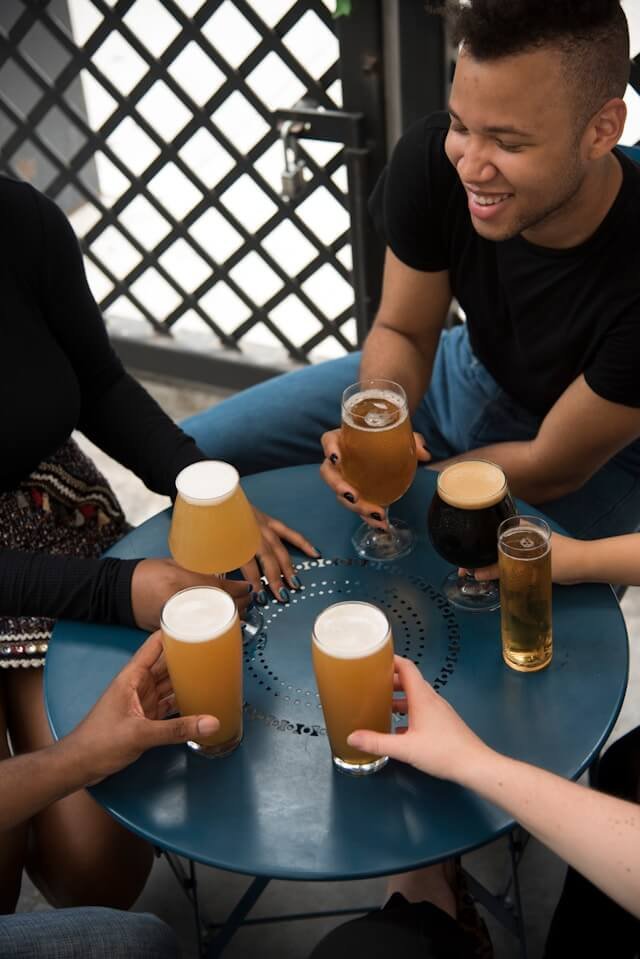
How to Stop Binge Drinking: A Comprehensive Guide (Part 8)
The Role of Professional Help
Seeking Professional Treatment Professional treatment can provide structured support and guidance:
- Detox Programs: Medical detox programs can help manage withdrawal symptoms safely.
- Rehabilitation Programs: Inpatient and outpatient rehab programs offer comprehensive treatment plans.
- Therapy and Counseling: Individual and group therapy sessions can address the underlying causes of binge drinking and provide coping strategies.
Types of Therapy Different types of therapy can be effective in treating binge drinking:
- Cognitive-Behavioral Therapy (CBT): Helps identify and change negative thought patterns and behaviors.
- Motivational Interviewing (MI): Enhances motivation to change drinking behavior.
- Family Therapy: Involves family members in the treatment process to address dynamics that may contribute to drinking.
Medications Medications can also play a role in reducing alcohol cravings and dependence:
- Naltrexone: Reduces the pleasurable effects of alcohol.
- Acamprosate: Helps maintain abstinence by reducing withdrawal symptoms.
- Disulfiram: Causes unpleasant reactions when alcohol is consumed, deterring drinking.
How to Stop Binge Drinking: A Comprehensive Guide (Part 9)
Additional Resources and Support
Online Resources Numerous online resources can provide information and support:
- Educational Websites: Websites like the CDC and NIH offer comprehensive information about binge drinking and its effects.
- Online Support Groups: Online forums and groups can provide community support and shared experiences.
Books and Literature Reading books on addiction and recovery can provide valuable insights and motivation:
- “The Naked Mind” by Annie Grace: Explores the psychology behind drinking and offers strategies to stop.
- “Alcoholics Anonymous: The Big Book” by Bill W.: A foundational text for those seeking sobriety through AA.
Mobile Apps Several mobile apps can help track your progress and provide support:
- Sober Time: Tracks your sobriety and provides motivational quotes.
- I Am Sober: Allows you to document your journey and connect with others in recovery.
How to Stop Binge Drinking: A Comprehensive Guide (Part 10)
Creating a Plan for Long-Term Sobriety
Developing a Personalized Plan Creating a personalized plan tailored to your specific needs and circumstances can significantly increase your chances of long-term sobriety:
- Identify Triggers: Understand what situations, emotions, or people trigger your urge to drink.
- Set Clear Goals: Define what you want to achieve and set realistic, measurable goals.
- Establish New Routines: Replace drinking habits with healthier activities and routines.
- Regular Check-Ins: Regularly review your progress and adjust your plan as needed.
Involving Loved Ones Including family and friends in your journey can provide additional support and accountability:
- Open Communication: Talk to your loved ones about your goals and the challenges you face.
- Ask for Support: Request specific ways they can help, such as attending support group meetings with you or helping you avoid triggers.
- Stay Connected: Maintain regular contact with supportive individuals who encourage your sobriety.
Continuous Learning and Growth Continuing to educate yourself about how much alcohol, the dangers of binge drinking and the benefits of sobriety can keep you motivated:
- Read Books and Articles: Stay informed by reading up-to-date literature on addiction and recovery.
- Attend Workshops and Seminars: Participate in events that offer insights and strategies for maintaining sobriety.
- Engage in Therapy: Ongoing therapy sessions can help you address underlying issues and develop coping mechanisms.
Let’s wrap this up…
Stopping binge drinking is a challenging but achievable goal. By understanding the risks, identifying triggers, setting clear goals, and utilizing practical strategies, you can take control of your excessive drinking and habits. Building a strong support system and seeking professional help when needed can further enhance your chances of success. For more in-depth guides and tips on various topics, visit HowToKings.com. Remember, taking the first step is the most important part of your journey to a healthier and happier life.
For more detailed guides and tips on various topics, visit HowToKings.com. Taking the first step towards sobriety is crucial for a healthier and happier life.
*Editor’s Note: The information in this article is intended for your educational use only and is not a substitute for professional medical advice, diagnosis, or treatment. Always seek the advice of your physician or other qualified health providers with any questions you may have regarding a medical condition before undertaking any diet, supplement, fitness, or other health programs.

